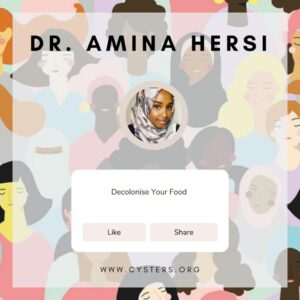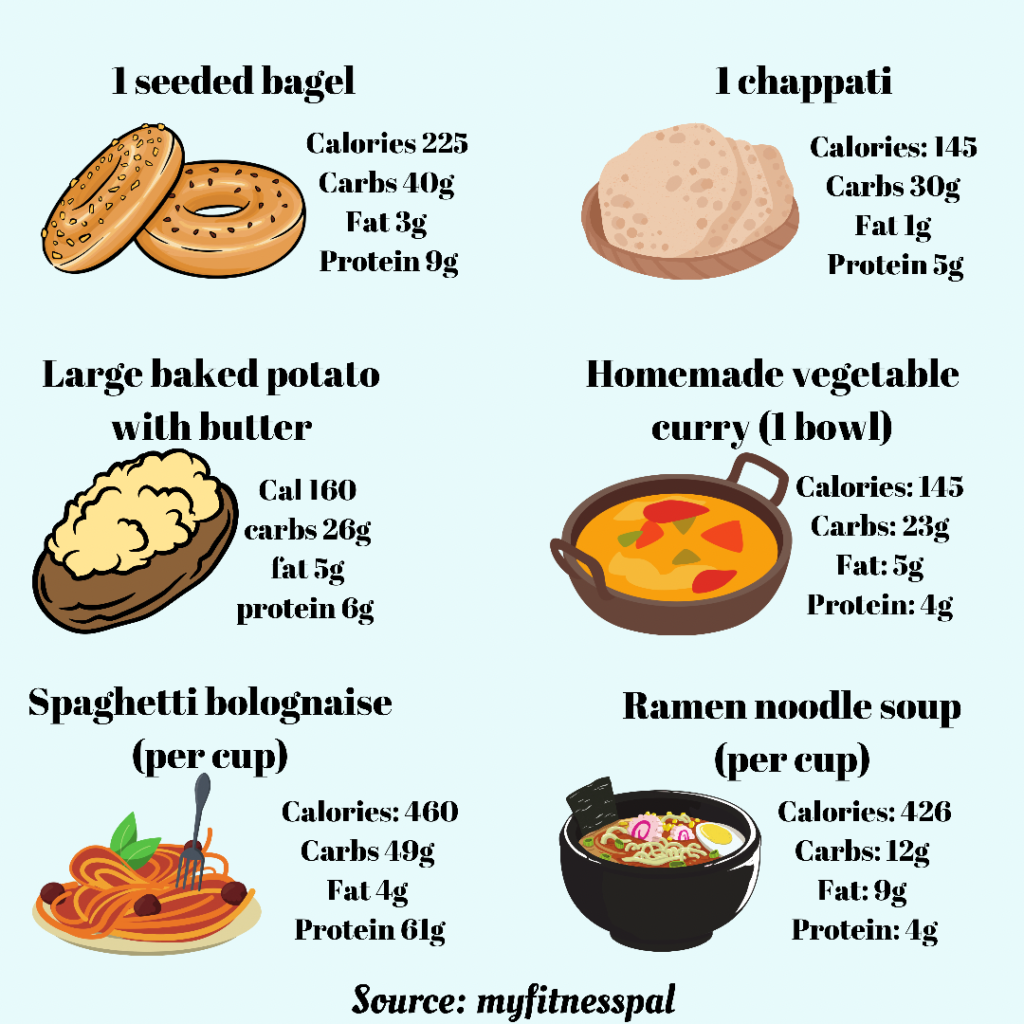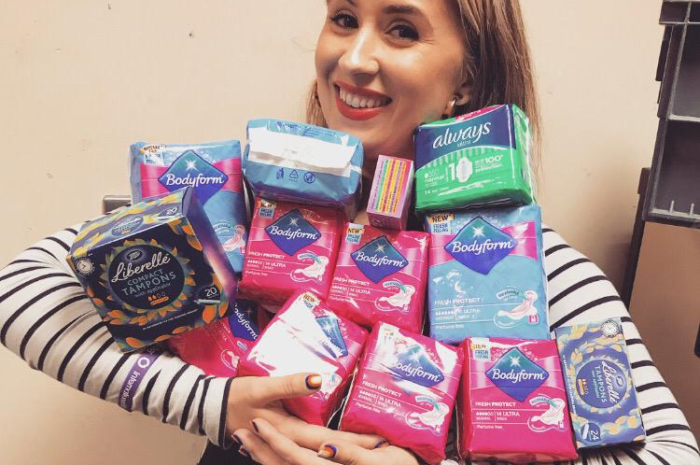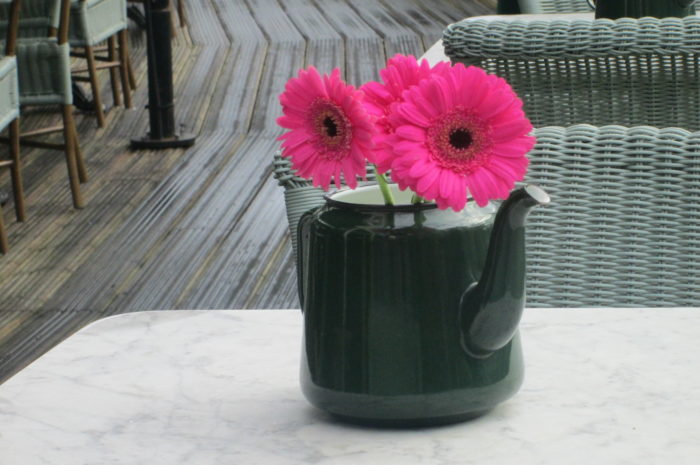
Decolonise your food
by Dr. Amina Hersi
“Decolonizing the mind means deconstructing the thoughts, preferences and values that derive from a colonial way of thinking” Matthew Heinrichs (organeyez)
Growing up in the UK has undoubtedly affected the way people like myself feel about their cultural foods. As a first-generation immigrant, growing up in the 90s was tough because I was always made to feel like my culture was something to shed. If you’ve been watching blue story like me on youtube – I was shocked to see Paul (A British-Nigerian man) show such fear towards his cultural foods and regaining the weight he had lost.
How many of us have described our cultural foods as “fattening and unhealthy”?It’s interesting because these “unhealthy” foods are what kept his ancestors healthy.
Looking at photos of my grandfather, he was slim and tall and lived to almost 90 years old. Eating the foods I grew up with allowed him to live a healthy life in Somalia. So why are these foods suddenly bad for us? In fact, many of the health issues that Black and Asian people face now worsened or only occurred when they migrated to the western world. It has been suggested that migration itself leads to worse health outcomes especially as POC assimilate into the ‘host’ society. Couple this with health inequalities faced by migrants and you have a recipe for disaster.
The idea for this article was inspired by the refreshingly honest Dr. Kera Nyemb-Diop PhD on Instagram as: @black.nutritionist. She has made it her mission to highlight the whitewashing of foods and the vilification of cultural foods. It is so sad that people are actually afraid to eat their cultural foods because of the brainwashing that occurs via social media.
One key comment she made stayed with me: why is it that kale is healthy, but collard greens aren’t? Nutritionally, they are very similar. Looking online, I’m met with: “why collard greens are the new kale”. The issue with this narrative is that the idea of eating collard greens, especially for African Americans, is nothing new! Why do foods need to be recognised by white people to be healthy or good for you?
Dr Nyemb-Diop also points out that this occurs with other cultural foods – plantain, a starchy relative of the banana has recently and widely been declared a superfood. When researching, I found a Huffington Post article describing “Five “hidden” superfoods” – listing okra, lentils, plantain, cassava and yams. All of which are things that you would easily find in many a West African or South Asian household.
One of the biggest issues I have with modern diet culture is the idea that food has to be plain/bland and boring to be healthy. I’m no stranger to dieting and I found that recipes often lacked the spices that my palate had become so accustomed to. Oddly enough, spices themselves are not inherently unhealthy and can be added to foods without changing much of the nutritional content. Yet It seems when we want to be ‘healthy’ we punish ourselves and take the joy and flavour out of food.
As a doctor, I give health advice all the time. I am ashamed that the fliers we give out for projects like change4life or Eatwell are devoid of any mention of ethnic foods. How is someone who eats completely different foods going to learn from this information? English food is very much all separated out on the plate with meat, vegetables and carbohydrates sitting neatly in sections. This food can be easily made to replicate the perfect plate.
This plate has all the proportions of carbohydrates, meat, vegetables and fat that you need on your plate. However, what do you do if you’re having a vegetable and lamb curry? How many five a day is in your stew? Does plantain count as a starch or a fruit? There’s sadly no mention of noodles, fu-fu or chappatis. This is what Public Health England have produced which sadly leaves much to be desired.
The UK is a melting pot of cultures. We deserve literature and information that takes us into account. Don’t be fooled that your cultural dishes are unhealthy. Below is a little comparison of popular foods and the average content of a cultural dish.
● a chappati has fewer calories, fat, and carbohydrates than a bagel.
● A homemade curry has fewer calories and carbs than a baked potato
● A homemade bowl of ramen soup is actually lower in calories and carbs than spaghetti bolognaise.

Knowing that, why do we often view these foods as unhealthy? Aside from the dieting world and its brainwashing, I think we’re judging cultural foods on their takeaway versions – even though takeaways have been altered and appropriated to appeal to the British palate. These dishes often contain considerably more fat and sugar than an authentic homemade version. My Pakistani husband finds a restaurant butter chicken to be a completely different dish to the Malai boti that he is used to.
This article was written not to divide but to remind people that you don’t need to avoid your cultural foods to eat healthily. Avoiding cultural foods is like any restrictive diet, it is not sustainable and will set you up for misery. This is especially true if your culture centres around eating together.
As someone who has struggled with binge eating in the past, these phases of cutting out my cultural foods only fueled a vicious cycle of guilt and binging. It’s time for us to break the chains of diet culture and focus on nourishing our bodies with food that is good for us and enjoyable!
If you’re interested in this topic and are looking for some resources, please check out the Diverse Nutrition Association on Instagram, they recently announced that they are decolonising the nutrition curriculum and are now offering an accredited course, you can find out more here.

Dr Amina Hersi has PCOS and happens to be a general practitioner. She’s used her unique perspective to provide easy to understand information on Instagram under the handle @thepcosdr.
She is also the founder of polybiotics a natural supplement containing key vitamins and minerals like inositol, all designed with PCOS in mind.” You can then say check out @polybiotics for more information.



